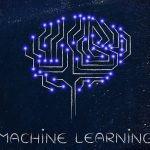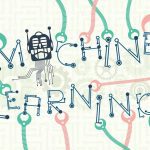The world is long past the Industrial Revolution, and now we are experiencing an era of Digital Revolution. Machine Learning, Artificial Intelligence, and Big Data Analysis are the reality of today's world. I recently had a chance to talk to Ciaran Dynes, Senior Vice President of Products at Talend and Justin Mullen, Managing Director at Datalytyx. Talend is a software … [Read more...] about How to Start Incorporating Machine Learning in Enterprises
Big Data
Learn everything you need to know about big data. Find out how companies are using this revolutionary technology and what it means for your business strategy.
4 Guidelines for Building a Successful Data Catalog
Building a successful and functional data catalog is a time-consuming and tedious task to the uninitiated. While it seems tiresome, you need to understand the benefits of having a centralized data catalog that all of your staff members can access and utilize. It doesn't only lower or eliminate downtime, but keeps everyone up-to-date and informed of any changes and additions in … [Read more...] about 4 Guidelines for Building a Successful Data Catalog
Deep Learning: Einstein Or Savant?
Artificial intelligence is one of the hottest topics in analytics today. Currently, the most popular member of the AI family, deep learning is solving some very difficult problems very well. Best known for image recognition, it is now being applied to a wide range of other problems. Given the success of the approach, it is easy to forgive people for thinking that deep learning … [Read more...] about Deep Learning: Einstein Or Savant?
Securing Competitive Advantage with Machine Learning
Business dynamics are evolving with every passing second. There is no doubt that the competition in today's business world is much more intense than it was a decade ago. Companies are fighting to hold on to any advantages. Digitalization and the introduction of machine learning into day-to-day business processes have created a prominent structural shift in the last decade. The … [Read more...] about Securing Competitive Advantage with Machine Learning
Why Big Data and Analytics are the Most on-demand Skills Today?
By 2024, the world's enterprise servers are set to annually process the digital equivalent of a pile of books that extends to more than 4.37 light-years to Alpha Centauri, our closest neighbouring star system in the Milky Way Galaxy. And according to the authors of this report published by the UC San Diego, some of the information is quickly discarded, and is transient. But the … [Read more...] about Why Big Data and Analytics are the Most on-demand Skills Today?
What is big data?
Big data is a term that refers to the massive amount of digital data created and shared every day. Big data can transform how we live, work, and communicate. It can be used to improve everything from public health and urban planning to business and marketing.
Big data is also changing the way we think about privacy and security. The volume, velocity, and variety of big data present challenges and opportunities for organizations and individuals. Regardless, big data is here to stay, and its impact will only continue to grow in the years to come.
What is big data analytics?
Big data analytics is the process of turning large, complex data sets into actionable insights. Businesses use various analytical tools and techniques, including machine learning and statistical analysis, to do this.
Big data analytics can be used to improve decision-making in areas like marketing, operations, and customer service. It can also be used to identify new business opportunities and optimize existing processes. With the help of big data analysis, businesses can gain a competitive edge by using their data better.
Want to learn more about big data? Datafloq has courses available. Contact us to get started.
When was big data introduced?
The term big data was coined in the 1990s, with some giving credit to John Mashey for popularizing the term. However, the concept of big data has been around for much longer.
Where does big data come from?
In the early days of computing, scientists and businesses began to realize that the amount of data being generated was increasing exponentially. As a result, they began to develop new methods for storing and processing data.
Over time, these methods have become increasingly sophisticated and have played a key role in enabling businesses to make sense of vast amounts of information. Today, big data is used in various industries, from retail to healthcare, and its importance is only likely to grow in the years to come.
What are examples of big data?
One of the most common examples of big data is social media data. With over 2 billion active users, Facebook generates a huge amount of data every day. This includes information on user interactions, posts, and even location data. Analyzing this data can help companies better understand their customers and target their marketing efforts.
Another example of big data is GPS signals. These signals are constantly being generated by devices like cell phones and fitness trackers. When combined with other data sets, GPS signals can be used to provide insights into everything from traffic patterns to human behavior. Finally, weather patterns are another type of big data set. By tracking these patterns over time, scientists can better understand the impact of climate change and develop strategies for mitigating its effects.
How do companies use big data?
Companies use big data in marketing, product development, and customer service. By analyzing large data sets, businesses can identify patterns and trends that would be otherwise difficult to spot. For example, a company might use big data to track customer behavior patterns to improve its marketing efforts.
Alternatively, a company might use big data to improve its products by identifying areas where customers are most likely to experience problems. For instance, big data can be used to improve customer service by finding pain points in the customer journey. Ultimately, big data provides companies with a valuable tool for gaining insights into their business operations.






